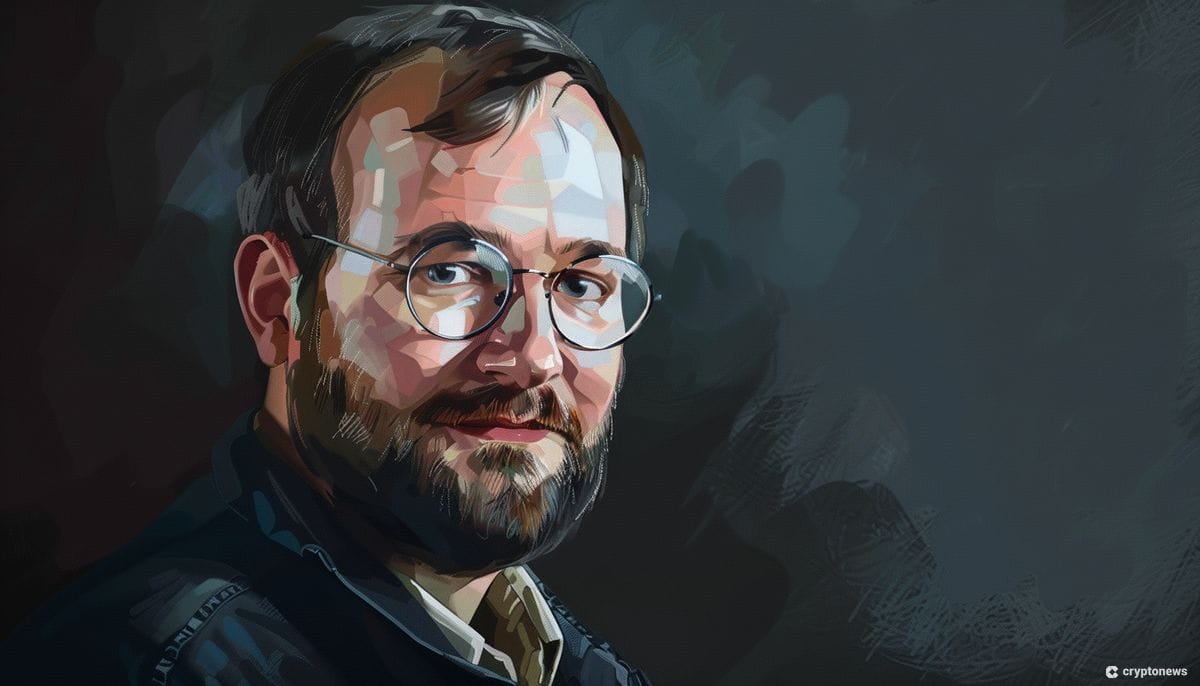Last updated:
April 25, 2024 17:00 EDT
| 2 min read
Recently, Charles Hoskinson, the creator of the Cardano Blockchain, delivered a powerful message to the cryptocurrency community, emphasizing the deeper significance of digital currencies beyond mere trading. Hoskinson’s heartfelt post on April 25 underscored that cryptocurrencies play a vital role that goes beyond financial transactions.
Inspired by the lyrics of the 1938 song “I Don’t Want to Set the World on Fire” by Bennie Benjamin, Eddie Durham, Sol Marcus, and Eddie Seiler, Hoskinson eloquently connected the essence of cryptocurrency to these timeless words.
Embracing the Core Values of Crypto: Charles Hoskinson and Buterin on Freedom and Decentralization
Hoskinson stated profoundly, “Crypto’s aim is not to cause a global inferno but to ignite a passion within each individual.”
“Remember, Crypto’s goal isn’t to set the world ablaze, but to kindle a fire in your heart” [link to tweet by Charles Hoskinson]
This sentiment resonates with Vitalik Buterin, the co-founder of Ethereum, who believes that crypto signifies more than just trading tokens. It represents a broader movement dedicated to upholding freedom, privacy, and decentralization.
“Crypto is more than token trading; it embodies a larger ethos of defending freedom, privacy, and empowering the common man” [link to tweet by Vitalik Buterin]
Buterin further explained that Bitcoin’s creation by Satoshi Nakamoto was rooted in a vision that transcended mere transactions, focusing on principles of liberty and decentralization to empower individuals over centralized authorities.
Aligning Cardano’s Mission with the Core Principles of Cryptocurrency
While Hoskinson’s message serves as a poignant reminder of the fundamental goals of cryptocurrencies, he also addressed a concerning trend within the industry—what he termed as “Kayfabe,” referring to orchestrated events and narratives that distort reality.
In a recent live broadcast, Hoskinson exposed instances of manipulated activities in the crypto space, where certain entities promoted specific projects under the guise of authenticity, creating a facade that misrepresents the industry’s true state.
Hoskinson pointed out the exclusion of entrepreneurs from the Cardano ecosystem in a poll, attributing such actions to a strategy aimed at promoting selected projects and individuals. He described these occurrences as “Kayfabe,” highlighting their artificial and disconnected nature from reality.
Expressing worry over the dominance of short-term narratives and sensationalism in industry discussions, Hoskinson drew parallels to challenges faced by the AI sector.
Despite these obstacles, Hoskinson remains dedicated to nurturing a transparent and inclusive environment within the Cardano community, emphasizing the network’s core values of decentralization, security, and transparency.
Significantly, the Cardano blockchain has been acknowledged for its security features, with the United Arab Emirates (UAE) adopting the platform to bolster security in criminal investigations conducted by the Dubai Police.

